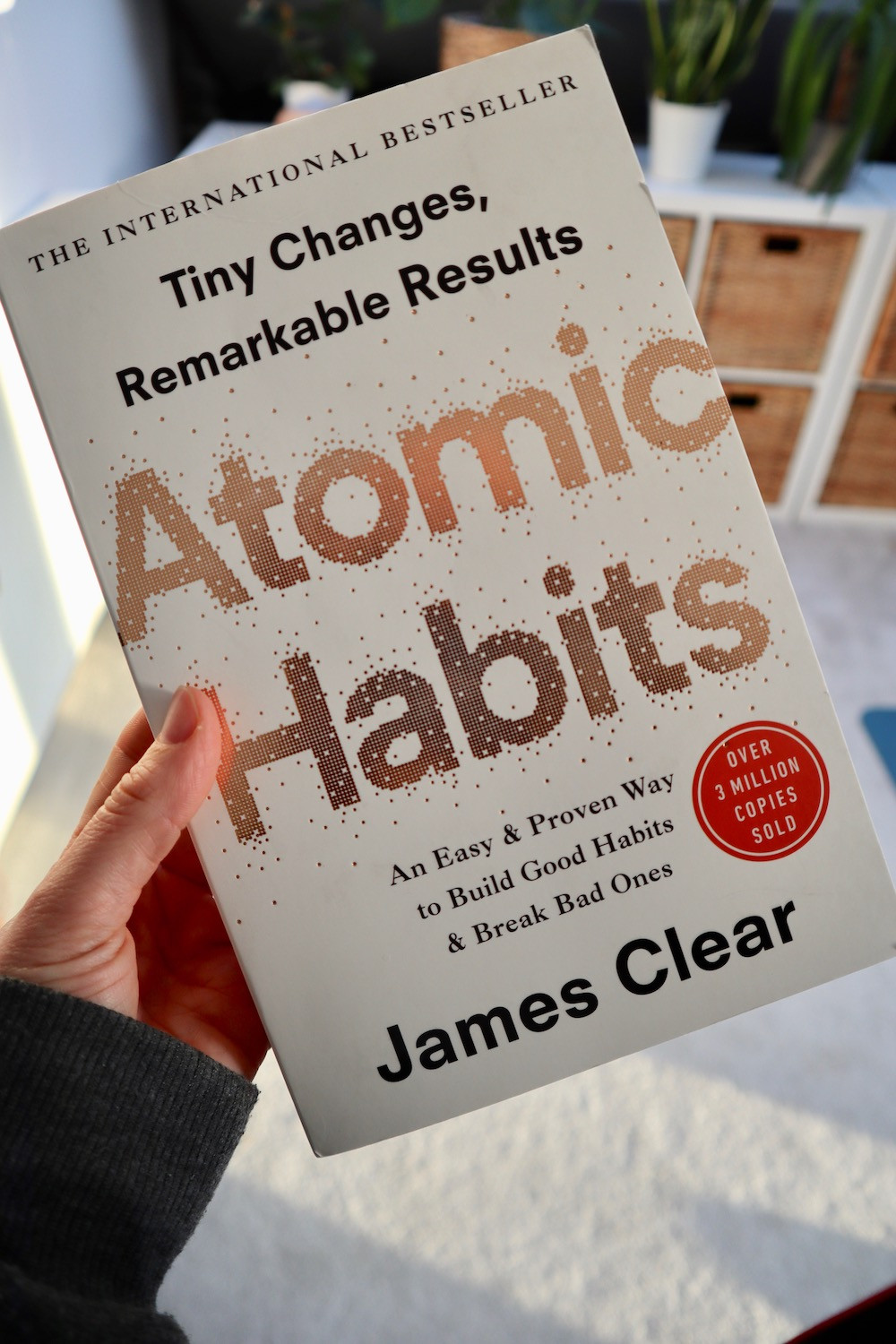Summary of "Atomic Habits: Key Takeaways & Review

Atomic Habits by James Clear is a powerful guide to understanding how small changes in habits can lead to big transformations over time. Published in 2018, the book explores the science behind habit formation. It offers practical strategies for building good habits, breaking bad ones, and mastering the tiny behaviors that lead to long-term success.
If you want to improve your life but struggle to stick to new routines, this summary will give you the core concepts of Atomic Habits and practical tips to implement them.
Atomic Habits Book Summary at a Glance
James Clear argues that habits are the compound interest of self-improvement. Tiny, seemingly insignificant changes, if repeated consistently, can lead to remarkable results over time. Atomic Habits focuses on incremental improvements, showing that success doesn’t come from huge, dramatic shifts but from refining the small behaviors that shape your daily life.
Clear explains that real change comes from identity-based habits, which align with who you want to become rather than focusing solely on the goals you want to achieve.
Key Takeaways from Atomic Habits by James Clear
The Power of 1% Improvements
- Small, consistent changes compound over time. Clear emphasizes that improving just 1% daily may seem insignificant, but these small improvements lead to significant growth over time. This idea is built on the power of compound interest, where small gains multiply over time to create exponential results.
The Four Laws of Behavior Change
- Clear outlines four key steps to building better habits: cue, craving, response, and reward. He also provides four laws for making good habits stick:
- Make it obvious: Design your environment so that good habits are easier to notice and do.
- Make it attractive: Link habits with something you enjoy or find appealing.
- Make it easy: Reduce the friction of starting a new habit.
- Make it satisfying: Give yourself an immediate reward after completing the habit to reinforce it.
Focus on Systems, Not Goals
- Clear explains that goals are about the results you want to achieve, but systems are the processes that lead to those results. If you want long-term success, focus on improving your systems (the daily habits and routines) instead of obsessing over the end goal. Successful people focus on the process, while others focus too much on outcomes.
Identity-Based Habits
- The most effective way to change your behavior is to focus on who you wish to become, not just what you want to achieve. For instance, rather than setting a goal to “lose weight,” work on becoming a person who “lives a healthy lifestyle.” This shift in mindset encourages sustainable habits because you’re working toward aligning your habits with your desired identity.
Habit Stacking
- A powerful method for building new habits is to "stack" them onto existing ones. Known as habit stacking, this strategy links a new habit to an already established one. For example, if you already make coffee every morning, you could stack a new habit like reading a book while the coffee brews. By pairing the new habit with an existing routine, it becomes easier to remember and do.
The Plateau of Latent Potential
- Not seeing immediate results is one of the most discouraging parts of building habits. Clear introduces the concept of the plateau of latent potential—the idea that habits take time to manifest their true impact. People often quit because they don’t see progress fast enough, but Clear emphasizes the importance of pushing through this period because big breakthroughs come after consistent effort.
Environment Matters More Than Motivation
- Motivation can be fleeting, but your environment is constant. Clear suggests that shaping your environment to support your habits is far more effective than relying on motivation. For example, if you want to practice guitar, keep it in a visible place where you can easily pick it up. If you want to eat healthier, ensure healthy food is easily accessible. Your environment can make or break your habits.
The Five Big Ideas
Small Changes Compound
- The key to long-term success is making small daily improvements, which compound over time into significant results.
Focus on Your Identity
- Build habits that align with who you want to become rather than focusing only on short-term goals.
Create a Supportive Environment
- Your surroundings play a major role in shaping your habits. Make your environment conducive to success.
Use Habit Stacking
- Link new habits to existing ones to make them easier to remember and integrate into your daily routine.
Consistency Over Perfection
- It’s more important to be consistent, even with small actions, than to seek perfection in your habits. Small, repeated efforts lead to big results.
Notable Quotes from Atomic Habits
- “You do not rise to the level of your goals. You fall to the level of your systems.”
- “Success is the product of daily habits—not once-in-a-lifetime transformations.”
- “Every action you take is a vote for the type of person you wish to become.”
- “Habits are the compound interest of self-improvement.”
- “The most practical way to change who you are is to change what you do.”
Applying The Lessons from Atomic Habits
To put the lessons of Atomic Habits into practice, start by identifying the small habits you want to build or break. Focus on creating systems rather than aiming for short-term goals, and use the four laws of behavior change to guide you.
- Make it obvious: Set visual cues for your desired habits.
- Make it attractive: Find a way to pair new habits with enjoyable activities.
- Make it easy: Start small and reduce any barriers that prevent you from taking action.
- Make it satisfying: Reward yourself for sticking with your habits.
By focusing on these small but consistent changes, you can build the momentum needed to create lasting, positive transformations in your life. Remember, the tiny, incremental steps lead to big outcomes over time.





